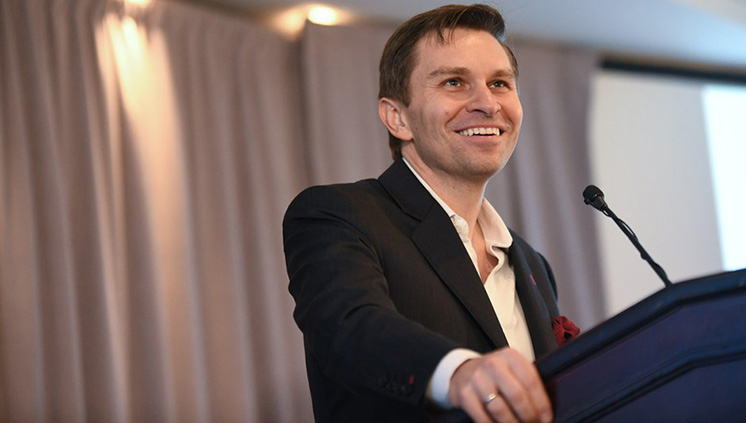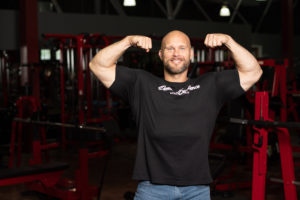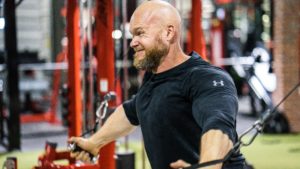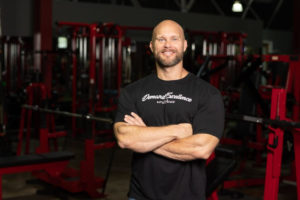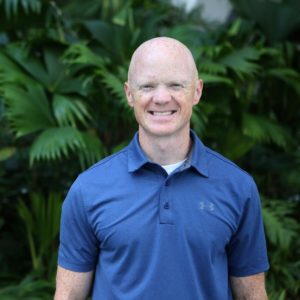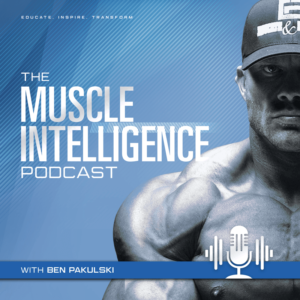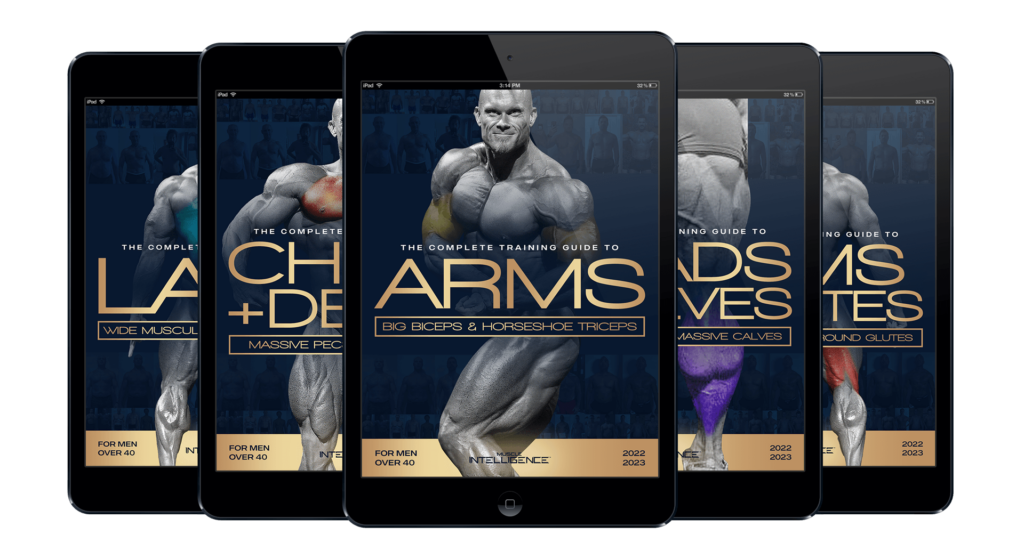This is an excerpt from the Muscle Intelligence podcast episode 091 – A new perspective on aging: how to optimize the quality of your lifespan, with Dr. David Sinclair. This excerpt has been edited for clarity.
Dr. David Sinclair: …The disclaimer here is that if somebody’s telling you they know what the best diet is for you, they’re lying. I know it’s not satisfying. Everybody that I talk to says, “Just tell me what to do and I’ll do it.” First of all, just consider we are all different ages, we’re different demographic, we’re different races, we have different microbiomes in our gut and we certainly have different professions. I make my living using the muscle between my ears. One of the things that I’m learning is that the ability of the body to build muscle while living a long time—it’s challenging to get that right.
Not only is it hard to get the right balance of exercise plus protein, but the supplements and the drugs, for instance, metformin, which we can delve into a bit more. Resveratrol is a supplement that I’ve worked on the molecule from red wine, these supplements and the drug, they actually have some slightly negative effects on muscle building. You might expect that, because we discovered, at least in the case of Resveratrol, is a mimetic copy of exercise and fasting. They naturally work through pathways that can actually mess with normal exercise.
When you’re young, let’s say you’re in your 20s, you already have very highly active longevity pathways as long as you’re not hugely obese and sedentary. I don’t think you need to worry so much about say taking resveratrol or metformin, like I did when I was in my 20s. I worked out quite a lot and felt great.
I got into my 30s, and my metabolism was slowing down. I started to feel a little older and I started to change my lifestyle. I wasn’t so much interested in bulking up. I was more interested, in long-term preservation of my body, because my body was doing a less efficient job at that. I started changing my diet from pretty much eating whenever and whatever I wanted in a healthy way, to starting to take resveratrol and focus more on muscle building than anything else. I’ve continued to do that as I’ve gotten older.
My father is now 80, so let’s fast-forward now to my future and probably most of our futures. My father is taking metformin and resveratrol. What does he do? Well, he’s still eating protein, but he doesn’t eat it as often. He fasts probably most days, eating one or two meals. Here’s what’s important: he’s gone back to the gym late in his life to build muscle. He is stronger than me at weightlifting at 80. That’s because three days a week, he’s spending a couple of hours in the gym.
Lesson one is, depending on the time of your life, your age and how you feel, you can change it, right? The older you get, the more you have to start thinking about things like fasting and supplementing. To offset all of that, you don’t want to lose your muscle, like you said, Ben. You can actually compensate like my father has by working out quite a lot to preserve and actually build muscle mass. He’s got pretty big muscles for an 80-year-old. He also stretches a lot. He does Pilates.
Now this is where it’s complicated. Let’s say you’re my age, you’re 50, okay? You’re starting to worry about longevity severely, but you don’t want to lose too much muscle mass. I’m losing right now, probably as an average male, a few percent per year of muscle mass. That’s horrific, right? By the time I reach 80, I could be done for. It probably was not helped by me taking metformin and resveratrol, which as I mentioned earlier seemed to counteract muscle growth.
What do I do if I’m trying to achieve is muscle and longevity? I go to the gym at least once a week. I try to go three times a week if I can. On the days that I’m working out, I don’t take metformin and I try to avoid resveratrol. On the days that I’m not working out, I’m fasting and I’m taking supplements.
The bottom line is, I think the best way to optimize the body is to alternate. We know that the body gets used to things, and it likes the shock of new things; temperature, being hungry, being fed.
Ben Pakulski: As far as the number of levers we have, all these different variables of aging, where does mTOR fall in in the necessity of optimizing longevity? Would mTOR be one of the biggest levers in your eyes in with respect to longevity? Should my audience be very, very concerned with overconsumption of protein?
DS: It’s a well-recognized fact that in experiments in animals, decreasing mTOR activity (which means having a lesser intake of protein) or taking the drug rapamycin greatly extends lifespan. In fact, it’s the most robust way to extend lifespan besides intermittent feeding and clot restriction.
Scientifically, yeah, mTOR is king, it’s central to longevity. But it’s not the only way to longevity and it’s not clear whether you need to consistently have it inhibited. I’ve just said that switching things up still can work. What am I saying here? I think that if you’re totally a carnivore, I hate to say it and I know some people will get angry because they really believe in meat, but I haven’t seen any evidence in animals, or in human populations around the planet that meat-eating extends lifespan.
In the short run, it’s certainly helpful. There’s no argument that it’s going to help you build muscle, repair tissue, this kind of thing. It’s a yin-yang. You don’t get anything for free, right? What I would say is what I do: I eat meat when building muscle. If I’ve just worked out, or I’m going to work out, or my muscles are particularly sore, I’m fine eating meat. When I’m not in those states, I will do my best to only eat a plant-based diet if possible. That way, my body is getting the benefits of both.
The other thing that I mentioned is that it’s not the only way to longevity. There’s a whole network, a survival network, this longevity network of genes that mTOR is part of. The other pillars of this network are AMP kinase, which will be activated by that drug metformin, then the sirtuins, and they all talk to each other. It turns out if you activate the sirtuins—and you can do that many ways in a lab—give them resveratrol or some other types of activators, you’ll also be turning on AMP kinase and you’ll be inhibiting mTOR. It is possible, I think, to be able to get the benefits of mTOR inhibition even when you’re eating a meat-containing diet.
Make sure you’re subscribed to the Muscle Intelligence podcast on Apple Podcasts, Spotify, YouTube, and anywhere else you listen!

